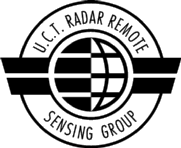

Back to list of Group's MSc Theses
Abstract:
This thesis examines the topic of Synthetic Aperture Radar Interferometry in a historical perspective, tracing its development from its beginnings in the 1960s up until May 1994. Applications are listed and airborne and spaceborne implementations reviewed.
The underlying theory of interferometry is explained, including a discussion of error sources, and a simulation for point targets is documented to illustrate the interferometric processing steps. The application of the SASAR VHF SAR system to interferometric operation is examined analytically.
Back to list of Group's MSc Theses
Abstract:
In this report the classification of ship targets using a low resolution radar system is investigated. The thesis can be divided into two major parts.
The first part summarizes research into the applications of neural networks to the low resolution non-cooperative ship target recognition problems. Three very different neural architectures are investigated and compared, namely: the Feedforward Network with Back-propagation, Kohonen's Supervised Learning Vector Quantization Network, and Simpson's Fuzzy Min-Max neural network. In all cases, pre-processing in the form of the Fourier-Modified Discrete Mellin Transform is used as a means of extracting feature vectors which are insensitive to the aspect angle of the radar. Classification tests are based on both simulated and real data. Classification accuracies of up to 93% are reported.
The second part is of a purely investigative nature, and summarizes a body of research aimed at exploring new ground. The crux of this work is centered on the proposal to use synthetic range profiling in order to achieve a much higher range resolution (and hence better classification accuracies). Included in this work is a comprehensive investigation into the use of super-resolution and noise reducing eigendecomposition techniques. Algorithms investigated include the Principal Eigenvector Method, the Total Least Squares Method, and the MUSIC method. A final proposal for future research and development concerns the use of time domain averaging to improve the classification performance of the radar system. The use of an iterative correlation algorithm is investigated.
Back to list of Group's MSc Theses
This page was last updated in January 2007 (RL)
![]()